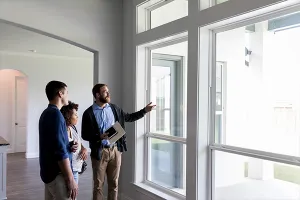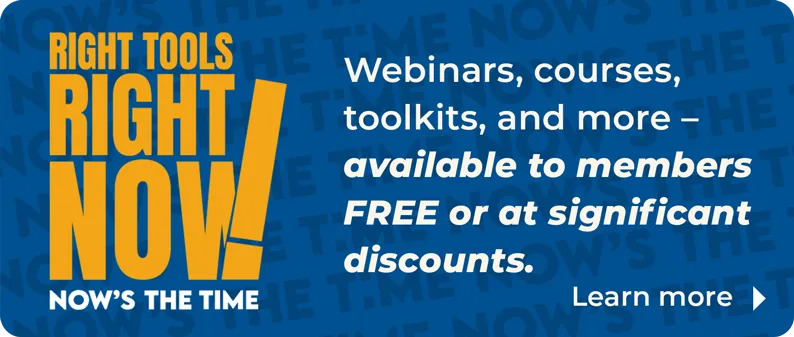Speed. Strength. Stamina. Courage. Mental toughness. A positive mindset.
These are some of the attributes we ad- mire in elite athletes, and since mid-March, they have been on display daily at REALTOR® associations across the country. The sheer scope of the COVID-19 crisis—from the threat of the contagion itself to the response by federal, state, and local officials—has kept association executives and their staffs in a state of near-constant readiness.
“Being able to communicate through Zoom—four or five times a day, on a minute’s notice—what was happening in the state was critical,” says Pennsylvania Association of REALTORS® (PAR) CEO Mike McGee, recalling the early days of COVID-19, “because what was true at 1 p.m. on a given day might very well have changed two hours later.”
With members trying to follow state orders, absorb federal relief rules, grapple with changing economic circumstances, and keep themselves and their clients safe, REALTOR® associations became beacons of hope, guidance, and advocacy.
A decision McGee made in 2019 proved invaluable as members’ COVID-19 calls and questions mounted. “A little over a year ago, we brought the PAR Legal Hotline in-house and installed a new software system, HubSpot, that allows us to track the number and types of phone calls we’re getting,” he says.
“Our goal with HubSpot was to pool all member data into one area in order to retool the member experience,” explains PAR Digital Director Kevin Juliano. “We’ve integrated our website, email marketing, and social media reporting, as well as perhaps our most valuable data—member questions—to our Solutions Center.”
That centralized reporting enabled the association to quickly spot trends and keep its COVID-19 resources relevant during the critical weeks between March 19, when Pennsylvania’s strict stay-at-home order went into effect, and May 19, when some in-person real estate activity was allowed to resume. As a result, the association’s website saw unique users spike from 40,000–50,000 in a typical month to 160,000 in March.
Essential Advocacy
Pennsylvania was one of a handful of states where in-person real estate activity was halted by a stay-at-home order. The March 19 order allowed only “life-sustaining” businesses to continue physical operations, so PAR launched a wide-ranging advocacy ef- fort to put real estate on the table. “We took every possible avenue that we could think of to support that real estate be deemed an essential service, from legislation to direct communication with the governor’s office to the state Real Estate Commission to filing an amicus brief on a lawsuit,” says Sherri Martin, PAR’s political affairs manager.
The effort culminated in legislation being introduced by state Rep. Todd Polinchock (R-Bucks), a REALTOR®, that would give residential and commercial real estate services a waiver from the governor’s order. To encourage passage, REALTOR® leaders in the state shared stories about the plight of sellers who couldn’t sell and buyers who couldn’t buy, and they put together a guide for government officials detailing how real estate sales could be conducted safely.
The bill passed. PAR applied for, and quickly received, an issues mobilization grant from the National Association of REALTORS®, launching a digital media campaign and calls to action to secure the governor’s signature. “The governor vetoed the bill,” Martin says, “but about two hours later, he came out with new guidance that followed what we had been advocating for weeks.”
Offering Guidance
In states where real estate was deemed an essential service, associations were called upon to provide guidance on sometimes confusing or vaguely written state orders.
Early on, daily phone and Zoom calls made it clear to Emily Chenevert, CEO of the Austin Board of REALTORS® in Texas, that both REALTORS® and association affiliates were looking to her and her team for information that was current and accurate.
“We stayed alert and worked fast to ensure that changes in health regulations or government orders were shared with members within hours, and we pivoted quickly to offer free, live online education,” she says. The Austin board also created a Stay Home, Work Safe Resources Kit (abor.com/worksafe), with business-building resources, client FAQs, expert interviews, and wellness tools “to make sure our members are informed, equipped, and empowered during this difficult time,” Chenevert says.
With the situation changing rapidly, push communications became must-reads for REALTORS®. “That old 'Don’t email the members all the time'? We threw that out the window very quickly,” Juliano says. “We were sending almost daily emails—updates from our attorney and our advocacy team— because members would see something on Facebook and not realize it was old information.”

Similarly, Virginia REALTORS® introduced daily touch points using a combination of email and social media to reach its membership of about 34,000. On Monday, it issued an analysis of a weekly flash survey of members; Tuesday was a Facebook Live event with General Counsel Laura Farley; Wednesday featured an all-member email focused on COVID-19 updates; Thursday was a Facebook Live event with Chief Economist Lisa Sturtevant, and Friday was an all-member e-newsletter.
"These constant and consistent touch points helped us combat the stress of the unknown for our members,” says Robin Spensieri, vice president of communications and media relations.
The Friday e-newsletter existed before the pandemic and offers more than just COVID-19 news. “We think it’s really important to continue offering the same types of resources and news our members rely on,” Spensieri says.
Value in Virtual
Indeed, even as they’ve stayed hyper-focused on COVID-19, AEs continued to offer their normal services, albeit with adaptations.
“We started working from home a week before [Michigan Gov. Gretchen Whitmer] issued a stay-at-home order,” says Vickey Livernois, CEO of the Greater Metropolitan Association of REALTORS®, which serves 9,400 REALTORS® in the Detroit area. The 12-person staff adjusted quickly. “All of our committee meetings have gone on as scheduled,” she says. “We’re holding virtual [professional standards] hearings. We conducted 70 candidate interviews. And we’ve hosted 40 virtual classes, with about 1,100 registrants.”
The staff has even found ways to reduce social isolation for members, hosting a Roaring ’20s murder mystery night and a Family Feud–style game night on Zoom.
Similarly, the Austin board has moved events and programs, such as its Small Broker Meetups and Global Lunch & Learns, to the virtual arena. The Reading-Berks Association of REALTORS® in Pennsylvania and its Young Professionals Network co-host online member happy hours, with guest speakers leading conversations on topics from virtual work-life balance to staying focused and hopeful in times of crisis.
At the Cape Cod & Islands Association of REALTORS® in Massachusetts, hundreds of members have tuned in to a new weekly webinar called “Zoomed in on Real Estate.” Each edition features a guest expert discussing issues in an interactive, informal question-and-answer format. The webinars have covered legal and ethical issues posed by the pandemic, including what REALTORS® need to know about tenant rights, evictions, and short-term rentals under stay-at-home rules.
There have been hiccups in adjusting to the new reality. After a GMAR member logged into a confidential meeting while in a car with other people, Livernois says, the association buttoned down its virtual meeting process. Another day, she got a call from the state president, a GMAR member, who’d spotted a fellow member tiling a floor during a Zoom education session. “We took care of it by creating a distance learning policy as well as a Zoom guide,” Livernois says.
Bottom line: “We’re doing everything we were doing, and we’re engaging way more members,” says Livernois, whose staff uses Zoom for member meetings and Microsoft Teams for internal communications.
In fact, the COVID-19 crisis has been an opportunity to engage with members in a more intimate way. “The listening has been happening very intently on both sides,” Spensieri says. “Members are listening to us for guidance and a translation of what the news means for their business, and we are listening to them to learn about the specific challenges they’re facing.”
Working with members remotely is not only possible, Livernois says, but looking into the future, “this might be the preferred way that members want to engage.”









